
George Doyle/Stockbyte/Getty Images
Clothing that fights wrinkles has come a long way from those easy-care polyester leisure suits of the 1970s. Today’s wrinkle-free and wrinkle-resistant fabrics have been growing in popularity and can be found on a wide range of clothing styles and household products, such as sheets. But if you’re confused about the differences between the terms, there’s good reason.
Considerations
Textile Fabric Consultants stays on top of fabric trends by manufacturing fabric swatch kits for textile students and industry professionals. Marketing Director Amy Gardner explains that “wrinkle-free and wrinkle-resistant are actually interchangeable terms used to describe a durable press finish.” She says durable press is a type of shape-retention resin finish that can be found on numerous fabrics and garments. You might also see the finish described as permanent press, durable, anti-creasing and crease-resistant.
Significance
People who hate to iron can appreciate the significance of durable press fabrics. Because durable press items have a resin finish, Gardner says they can better “retain their shape and a pressed appearance after many uses, washings and dryings.” Depending on the fabric and clothing item, Gardner warns that some will need to be touched up with an iron and are not truly "wrinkle-free."
History
The National Park Service, or NPS, maintains fabrics and clothing in historical settings around the country, and it reports that the first commercial production of polyester was in 1953. The wrinkle-resistant nature of polyester made it a popular fabric in clothing through the 1960s and 1970s. Today’s polyesters are designed to look and feel more like natural fabrics, such as silk, wool and cotton. The NPS explains that because modern polyesters are often blended with other fibers, it can be hard to tell them apart.
Concerns
Both the NPS and Textile Fabric Consultants note that one of the problems with wrinkle-resistant clothing is that it can be hard to clean. Grease and oil stains have been a particular problem, but Textile Fabric Consultants reports that companies have been making progress and the problems have been minimized. There have also been concerns about fabric degradation in wrinkle-resistant products and environmental concerns in their manufacture.
Warning
Wrinkle-fighting clothing and fabrics tend to come at a higher price, but Textile Fabric Consultants reports that for the most part, they are still reasonably priced. However, it warns that there are no stringent guidelines for manufacturers of these fabrics, so performance will vary. The company recommends sticking with well-known brands you can trust.
Related Articles

Care Instructions for Voile Fabric

How to Iron Linen Clothes

How to Remove Wrinkles From Polyester ...
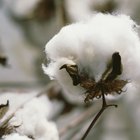
What Is Cotton Plisse?

Properties of Cotton Fabric

The Care of Plisse Fabric

How to Iron Velour Clothing
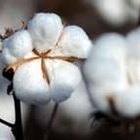
Nomex Vs. Indura Cotton

Cotton Vs. Permanent Press Fabric
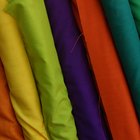
Characteristics of Rayon Fabric
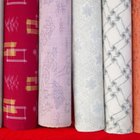
The Advantages & Disadvantages of Woven ...

What Is the Difference Between Denim & ...

Spandex vs. Polyester

Can You Iron Out Wrinkles on Sheer ...

How to Soften a Canvas Shirt
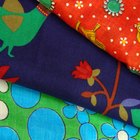
What Is Arnel Vintage Material Fabric?

How to Get Tanning Lotion Stains Out of ...

Description and Characteristics of ...
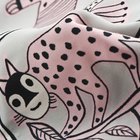
What Is Berber Fleece?

The History of Polyester Fabric
References
- National Park Service: Conserve O Gram: Synthetic Fibers In Costume Collections
- Amy Gardner; Marketing Director, Textile Fabric Consultants, Inc.; Smyrna, Tennessee
Writer Bio
Carol Ochs is an award-winning writer in the Washington, D.C. area. During 17 years with The Associated Press she covered health, medical and sports stories as a writer, editor and producer. She has written for the health section of "The Washington Post," a Fairfax County stewardship publication and a biopharmaceutical newsletter. Ochs has a Bachelor of Science in journalism from Ohio University, Athens.
Photo Credits
George Doyle/Stockbyte/Getty Images